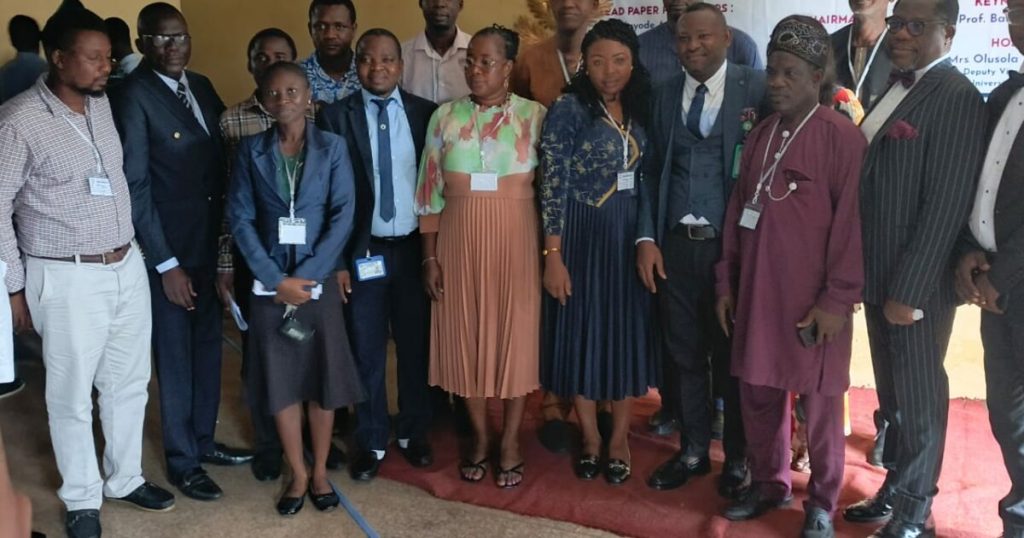The imperative for integrating technology and entrepreneurship into Nigeria’s tertiary education system has taken center stage, with scholars emphasizing its crucial role in addressing the nation’s, and indeed Africa’s, persistent struggles with poverty, unemployment, and underdevelopment. Professor Babatunde Adebesin, a distinguished Professor of Space Physics and Aeronomy, has championed this call, urging the Nigerian government to spearhead a policy shift that prioritizes innovation, invests in robust digital infrastructure, and cultivates an educational framework that produces technologically adept graduates equipped for the modern workforce. This transformative approach, he argues, is essential for harnessing the potential of the youth population and driving sustainable economic growth within the country. He posits that the traditional mandates of teaching, research, and community engagement within tertiary institutions are insufficient without the infusion of technology and entrepreneurial skills, rendering them inadequate to meet the demands of the 21st-century global economy.
Professor Adebesin’s pronouncements were made during his keynote address at the 1st Multidisciplinary Conference of Southwestern University of Nigeria, centered on the theme of harnessing science, technology, and entrepreneurship for global economic growth and sustainable social impact. He underscored the necessity of synergizing these three critical domains – science, technology, and entrepreneurship – to catalyze economic transformation, generate wealth, and secure national prosperity. The professor emphasized the rapid pace of technological advancements characterizing the current era, highlighting the transformative impact of emerging technologies like Artificial Intelligence, blockchain, quantum computing, biotechnology, and green energy. These technologies, he noted, possess both disruptive and creative potential, capable of both reshaping industries and creating entirely new economic sectors, while simultaneously impacting existing job markets and exacerbating the digital divide.
The advent of the digital economy, with its trillion-dollar prospects in sectors such as fintech, agritech, healthtech, and edtech, presents a golden opportunity to empower the vast population of disillusioned African youth, Professor Adebesin argued. He reiterated his call for governmental action, urging a commitment to innovation-driven policies, improved digital infrastructure, and educational reform geared toward producing graduates with industry-relevant skills. This concerted effort is crucial, he emphasized, to bridge the digital divide, unlock the potential of the youth, and position Nigeria for sustained economic growth in the digital age.
Complementing Professor Adebesin’s perspective, Dr. Ladi Arowa, Managing Director of Agenda Media, shed light on the burgeoning digital landscape in Nigeria, highlighting the substantial internet penetration within the country. With over 107 million Nigerians online, representing nearly half of the population, the potential for digital skills acquisition to drive economic transformation is immense. He cited success stories of Nigerian tech entrepreneurs who have leveraged digital platforms to contribute significantly to national growth, demonstrating the power of the digital economy to create jobs and drive innovation. However, he acknowledged the persistent challenges of infrastructure deficits and prohibitive data costs, which hinder the full realization of the digital economy’s potential.
Dr. Arowa advocated for increased public-private partnerships to tackle the digital infrastructure deficit, proposing the creation of regional innovation hubs with free internet access to facilitate skill development among youth. He also recommended the provision of grants to tech startups as a key strategy to further deepen digital engagement among young Nigerians. These initiatives, he argued, would not only empower the youth but also stimulate economic growth and accelerate national development. Furthermore, he stressed the importance of government intervention in addressing the digital divide, advocating for policies that make internet access more affordable and accessible to all.
The conference, inaugurated by Dr. Olasunkanmi Shode, Acting Vice Chancellor of Southwestern University, was positioned as a critical platform for global dialogue on the intersection of science, technology, entrepreneurship, and societal impact. He highlighted the transformative potential of these forces in shaping economies and societies and emphasized the conference’s objective of exploring how science and technology, guided by ethical entrepreneurship, can be harnessed to drive inclusive growth and create enduring social impact. Dr. Shode’s remarks underscored the conference’s ambition to serve not just as a forum for academic exchange but also as a catalyst for new partnerships, innovative projects, and a renewed commitment to leveraging knowledge for the betterment of humanity. The participation of other notable academics and professionals further enriched the discourse, solidifying the conference’s role as a vital platform for charting a course towards a more technologically advanced and economically prosperous Nigeria.


